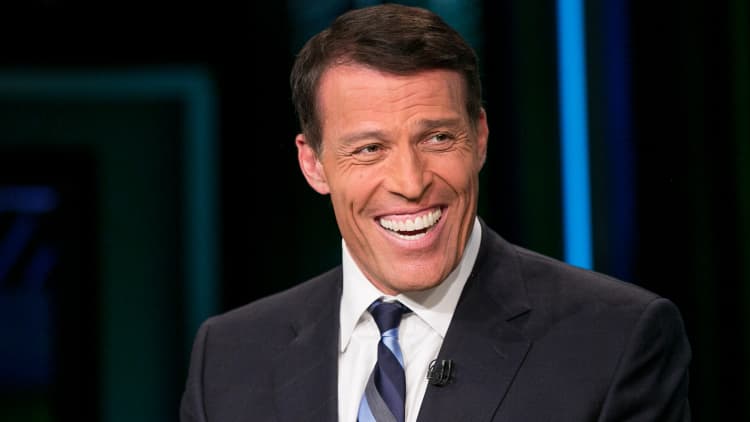You know it's important to save money — but when is it important to spend? Even when trying to be financially prudent, don't scrimp on these five crucial areas of your life:
Health and self-care
Self-care is a nebulous concept that means different things to different people. It can take the form of anything from sleep, books or daily runs in the park (free) to spa treatments (wildly expensive).
As Anna North recently wrote for The New York Times, and as Sheryl Sandberg writes in her new book "Option B," immersing yourself in work you find fulfilling and exciting can even function as self-care.
But whatever it means to you, remember to prioritize the needs of your body, mind and overall well-being. Neglecting your health will catch up with you, often more quickly than you think, and getting sick can be far more expensive, not to mention far less pleasant, than staying well.
Besides, what's the point of achieving success if you're in no fit state to enjoy it? As Count Rugen tells Prince Humperdinck in the classic 1987 comedy "The Princess Bride," "If you haven't got your health, you haven't got anything."
Insurance
Life insurance, car insurance, renter's insurance, health insurance, pet insurance: These monthly outlays can seem like a drain. It's easy to become resentful when you tally up the costs and wonder what you're getting in exchange for the steady stream of cash leaving your accounts.
One bank-breaking emergency is usually all it takes to set you right.
Insurance is a situation where an ounce of prevention really is worth a pound of cure. Although various companies will try to sell you on a host of different kinds of policies that might not be worthwhile, generally speaking certain kinds are a vital investment, even if you might not ever see a return. Bankrate lists the most important ones as "home, health, auto, life and long-term disability," and adds, "Ignore these at your peril."

Safety and protection
If you bike a lot, spring for the quality helmet. If you're around persistent loud noises for work, get the headphones that actually protect your hearing. If you don't want to get pregnant, invest in something effective like an IUD. If you want to keep your eyes in good shape, don't try to re-use contacts that are meant to be thrown away.
Yes, all of these things can cost more in the short term. But they're more cost effective than dealing with the life-changing ramifications of negligence or neglect.
Job-seeking or networking-related costs
Though thrift is important, it's hard to accumulate real money without earning it, and the best way to do that is to focus on setting up one, or more than one, reliable income stream. And there are start-up costs for that, too, including education, training, networking and even clothes, since to get well-paying jobs you often have to look and act professional.
That's also why self-made millionaire Barbara Corcoran calls the $360 she spent on a fancy coat very early in her career the best investment she ever made. It's also why Warren Buffett has always been grateful he paid to take that public speaking class and why a young Tony Robbins feels similarly about spending $35, almost as much as he then earned in a week, for a three-hour seminar with a personal development coach.

Likewise, even if it means on cutting back on coffee for yourself, treat the mentors and connectors to whom you reach out for help, either when you're first meeting up with them or afterwards to say thank you.
The right person can help you land a job you otherwise might not have even been able to apply for. If you can make contact with them and they're willing to meet you, take them out and listen to them and show your gratitude by picking up the check. That's what helped Alec Baldwin break through in Hollywood and it's a strategy that has paid off for millions of other less exalted workers, too.
Gifts and charity
Money often serves as a salve for unhappiness. When you know you're dissatisfied, even if you don't know why, buying something can help, at least for the moment. The trouble is, the glow of the purchase fades and the unhappiness remains.
Spending doesn't help in the long run and neither does scolding yourself or making efforts to keep yourself from spending, as long as the emotion that triggers you is still there. The only real way to fix it is to address it directly, and the best ways to do that can be to work on and .
can help with both. If you can't give your time, give your money either in person or by way of a charity. As the puppets of the hit Broadway musical "Avenue Q" learn, donating to a good cause doesn't just help the cause, it also makes you feel generous and compassionate. It makes you feel like a new and better person, too.


